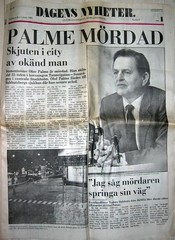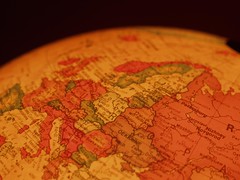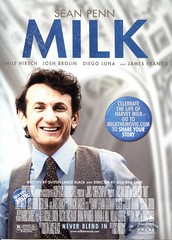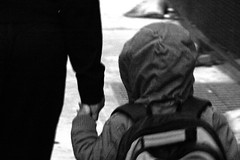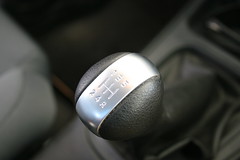 I just got a delayed Christmas present in the form of books. I have been fascinated by the politicization of food for some time now and therefore this present really hit the ball straight out of the park.
I just got a delayed Christmas present in the form of books. I have been fascinated by the politicization of food for some time now and therefore this present really hit the ball straight out of the park.It´s clear that more and more people are starting to advocate for healthier and more sustainable ways of eating. Brilliant. What seems to work is what we do at Demos as well: giving people tools and tips how to act rather than beating them on the head with information and guilt.
I was actually quite surprised last week to see that TV host Ellen DeGeneres - a stay-at-home mom favourite - had author Jonathan Safran Foer in her show talking about his new book, Eating Animals. In his book Safran Foer explains his journey from a father of a new-born baby wanting to know what to feed his child to an advocate of a vegetarian diet.
If you have followed the debate - in the form of documentaries, celebrity chefs and books - there is nothing new in Safran Foer´s book. But what makes it briliant is that a celebrated bestseller novelist - you might even say a household name - decided to make a big move towards more conscious eating. In the TV interview Safran Foer was simultaneously funny, witty and still critical and factual. I think we get further with that strategy than with the Michael Moore approach.
The other book in the gift bag was journalist-writer Michael Pollan´s pamphlet-like publication Food Rules, An Eater´s Manual. It builds on his bestseller In Defense of Food but makes an excellent move toward simplifying his message. Pollan´s book is concise and something you could have in your bag when you head to do the groceries. The book has 64 tips. Here are some of my favourites:
Rule 3: Avoid food products containing ingredients that no ordinary human would keep in the pantry.
Rule 6: Avoid food products that contain more than 5 ingredients.
Rule 12: Shop the peripheries of the supermarket and stay out of the middle.
Rule 21: It´s not food if it´s called by the same name in every language.
Rule 22: Eat mostly plants, especially leaves.
Rule 47: Eat when you are hungry, not when you are bored.
Rule 59: Try not to eat alone.
I recommend you buy the book. It´s funny, useful and to the point. The most important contribution by Pollan to the public debate on food is: it´s not that complicated to eat healthy. Common sense gets you far.



